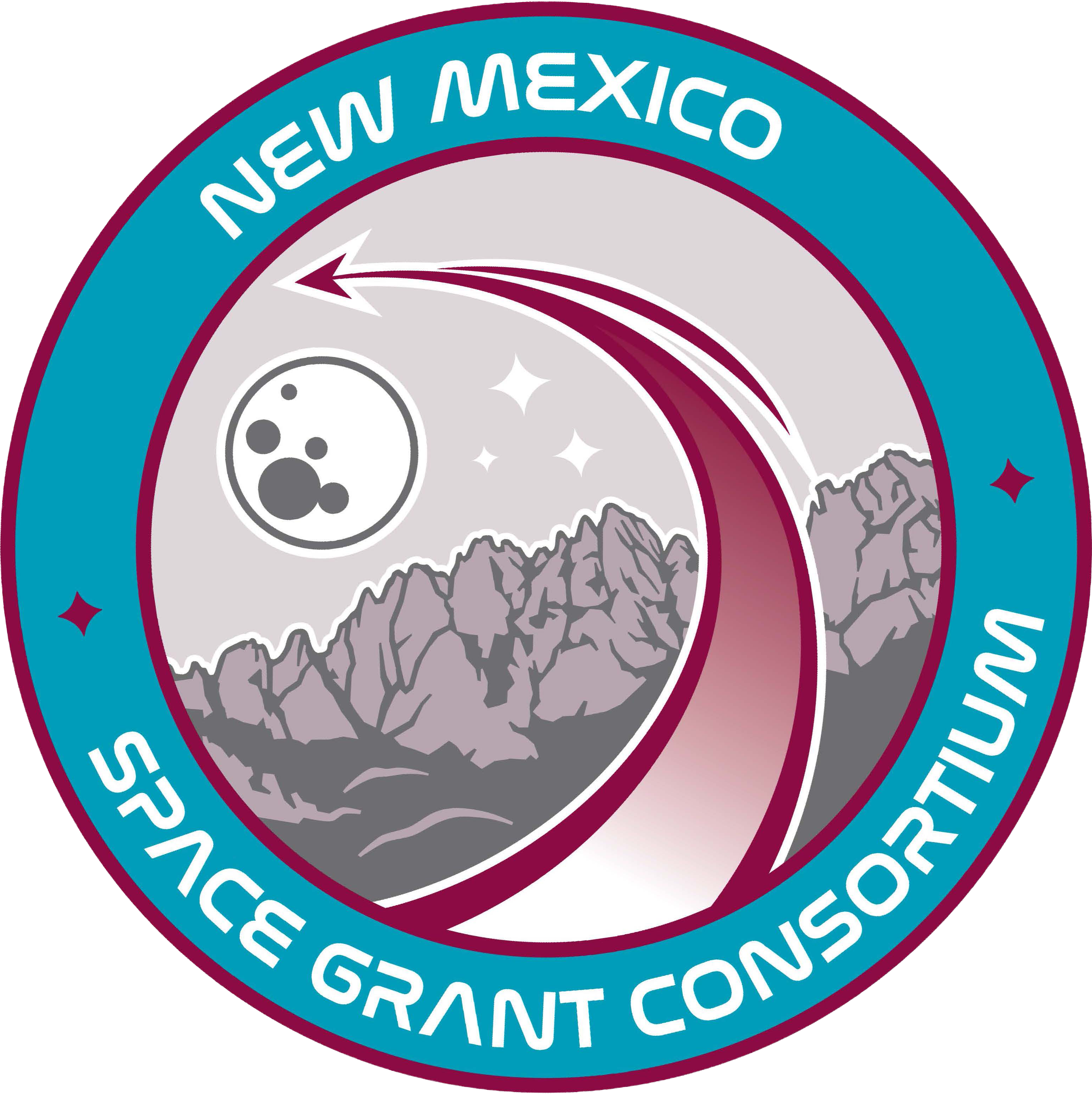
Competitions & Opportunities
Don’t miss out on student competition opportunities available from NASA. Check this page often for new additions.
Click on each opportunity below to learn more and find application details.
We are reaching out to ask for your help in spreading the word about NASA ORBIT (Opportunities in Research, Business, Innovation, and Technology for the Workforce)—a brand new national challenge inviting university and community college students to solve tomorrow's challenges in space and on Earth.
How does the challenge work?
NASA ORBIT offers two innovation tracks:
- ORBIT Earth: Transform NASA patents into commercial products that solve terrestrial problems
- ORBIT Space: Design next-generation systems for NASA's Moon to Mars missions
Students can participate in one or both tracks, with an optional Integration Bonus for bridging both challenges.
What's in it for participants?
- $380,000 in total award funding
- Mentorship from NASA experts
- An in-person showcase event
- Exclusive accelerator program for finalists
For faculty advisors, NASA ORBIT can be integrated into curriculum as a capstone project, extra credit, research credit, an extracurricular activity, or to promote interdisciplinary collaboration for courses with a variety of majors.
There will be a free Open Information Webinar on Tuesday, January 20th and Monday, February 2nd for anyone who wants to learn more about participating: https://nasaorbit.org/all-events/
Registration is open until Feb. 9, 2026
Learn more at: https://nasaorbit.org/
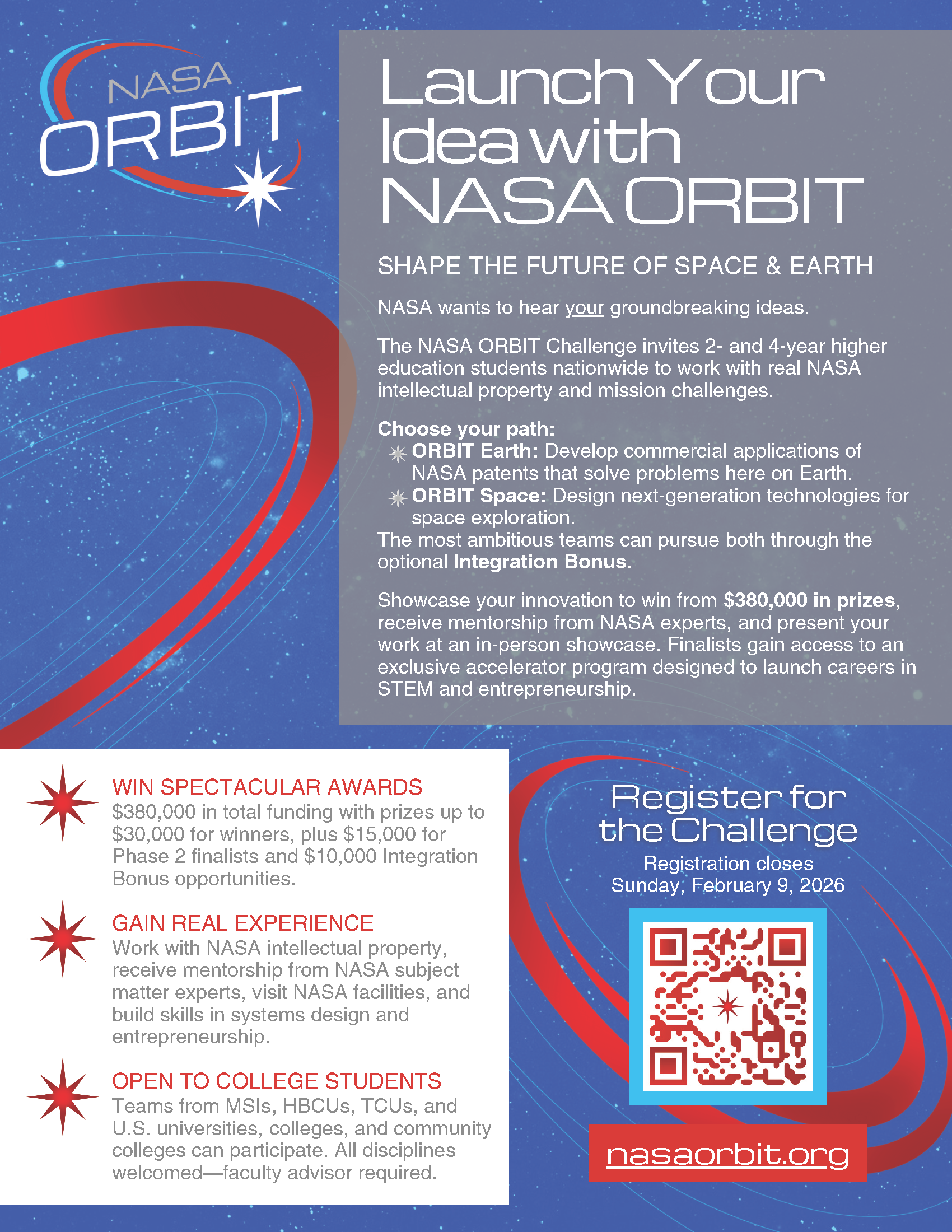
Opportunity to invite your Space Grant Consortium and EPSCoR universities, along with multidisciplinary teams of students, to participate in the Earth Cup Race-1 Challenge.
This competition represents the inaugural phase of a long-term space challenge/program focused on developing the technical readiness and workforce capabilities required to deploy sunshade systems at the Earth–Sun L1 point.
The challenge is particularly well suited for students pursuing interests in STEM disciplines, aerospace engineering, satellite technologies, environmental impact, and space-related business and commercialization opportunities.
About the Challenge
• Race-1 will host up to 50 international teams. Each team will innovate using a standardized MembraneSat platform—a flat, hexagonal sailcraft designed for sequential deployment from a single launch vehicle fairing in Low Earth Orbit.
Key Technical Milestones Include:
• Establishing downlink communications via TinyGS for telemetry
• Implementing autonomous attitude control
• Managing atmospheric drag in the free molecular flow regime
• Demonstrating the effects of solar radiation pressure
Getting Started
• An introductory overview of Earth Cup is enclosed.
• Additional technical and programmatic details are available at EarthCup.
Q&A Webinars
EARTHCUP will host two informational webinars for prospective teams. To receive the meeting schedule and access links, please complete the brief registration form at:
earthcup.space/user/register.
In the Lunabotics Challenge, participants will develop a robot capable of performing construction operations that support future space exploration objectives.
Some of the Challenge Deliverables include Project Management Plan, Career Engagement Report, Presentation and Demonstration, Systems Engineering Paper, Robot Data Report, Proof of Life Video, and a functional Prototype Robot.
The prototype robot should demonstrate capabilities outlined in the challenge guidebook and to provide construction data for future off-world operations. This initiative aligns with NASA’s progressive approach to space exploration – using experiences gained in low Earth orbit and lunar missions as stepping stones toward the ultimate goal of sending humans to Mars.
Event Dates (Subject to Change):
- Sept 8, 2025 - The Guidebook release date
- May 14-17, 2026 - The Qualifying Challenge at the University of Central Florida
- May 19-21 The Challenge at the Kennedy Space Center, Florida
Audience: Colleges/Universities
Contact: ksc-lunabotics@mail.nasa.gov
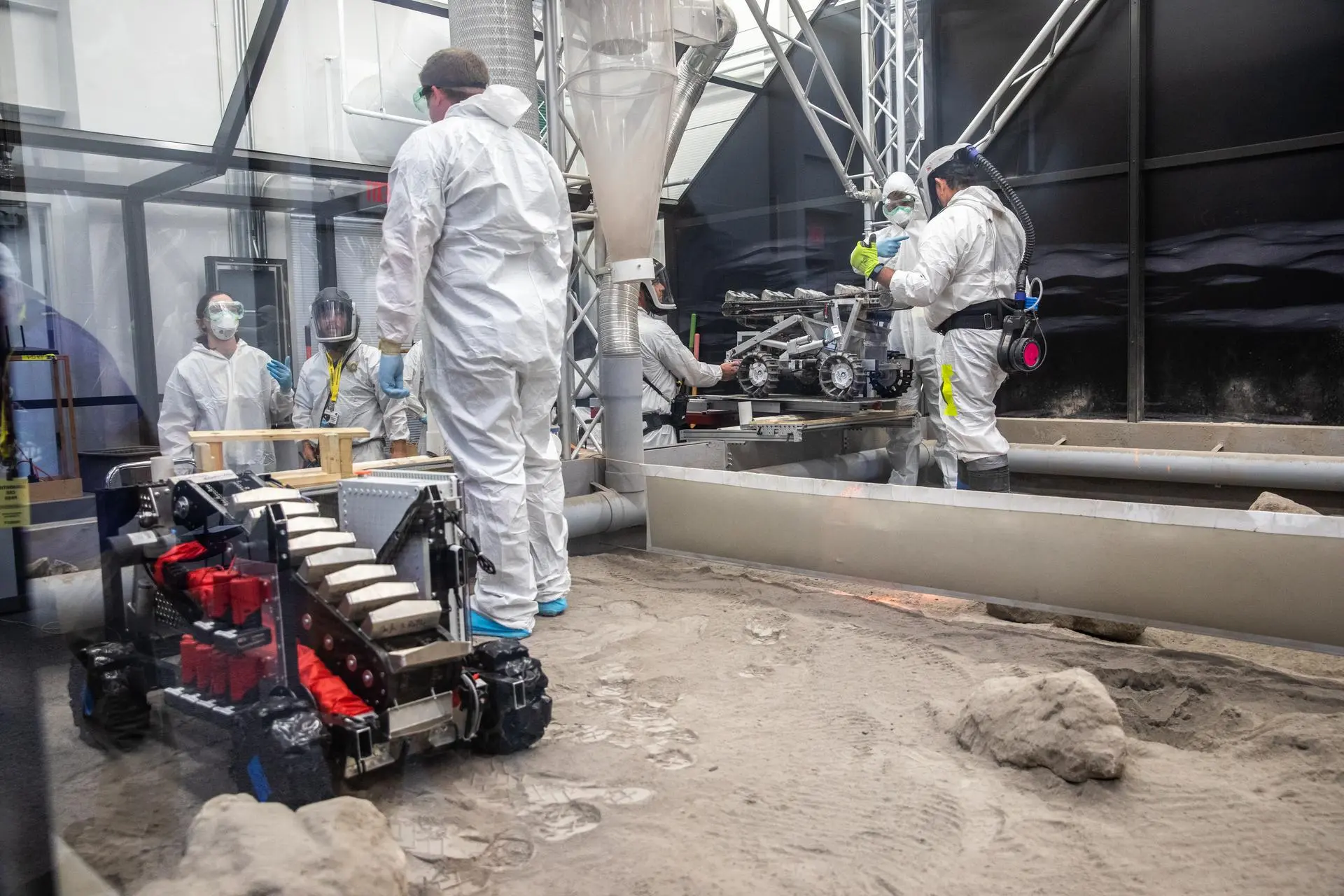
The Robotics Alliance Project actively supports national robotics competitions: Best Robotics, Botball Robotics, and the FIRST Robotics Competition. These competitions are available nationwide for teams of professionals and young people to solve an engineering design problem in an intense and competitive way. The Robotics Alliance Project also maintains a clearinghouse of robotics-related educational materials.
Visit the website to learn more about the competitions, starting a team and event schedules.
Contact: agency-rap@mail.nasa.gov
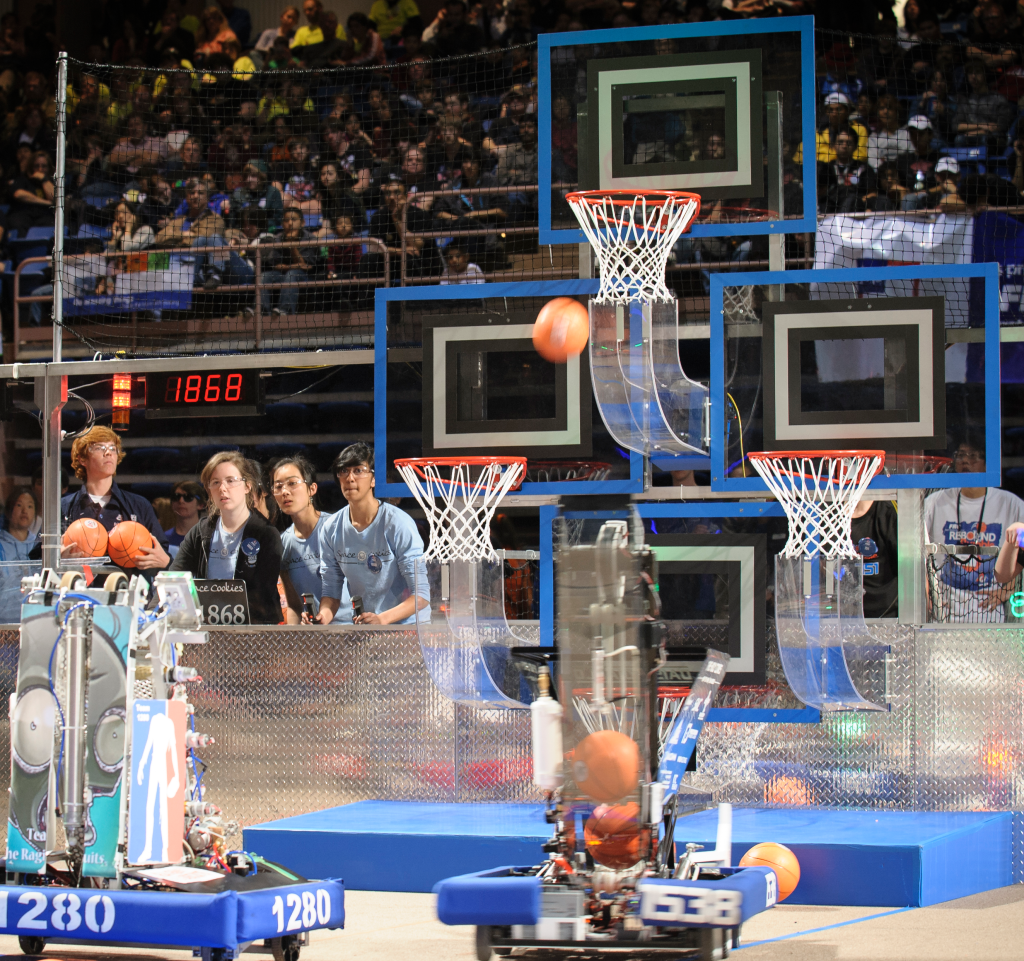
- Conceptual study
- Submission of a 5-7 page proposal
- Creation of a 2-minute video summarizing the team's proposal

- Award: $126,000 in total prizes
Date Opens: August 29,2025
Date Ends: March 4, 2026
Notice of Intent Deadline: October 20,2025
Notice of Intent Submission Form
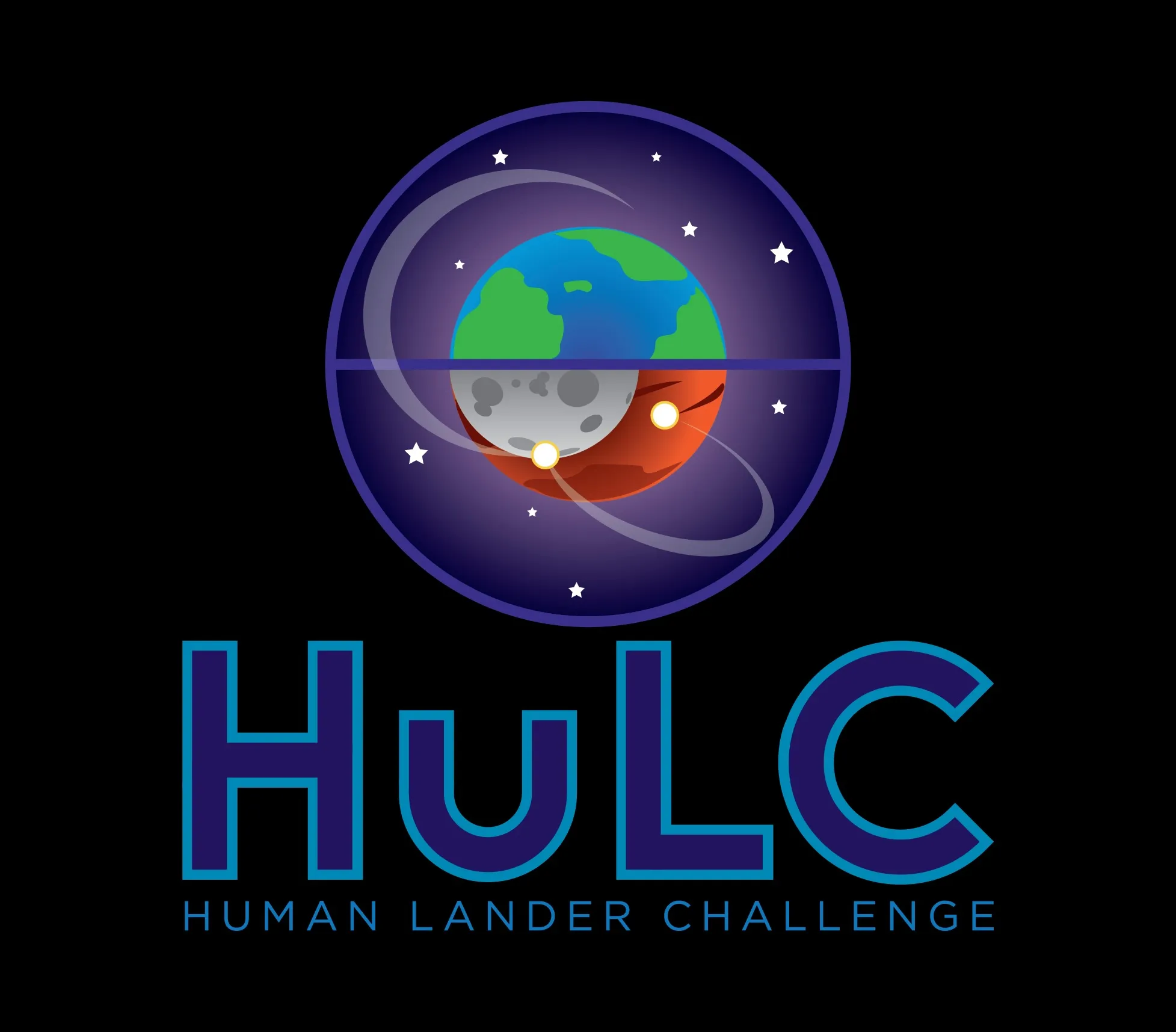
TechRise seeks to equip America’s future workforce with the skills needed to advance the U.S. aerospace economy. Under this nationwide contest, sixth to 12th graders team up to design an experiment under the guidance of an educator. Teams from schools in U.S. states and territories submit ideas for experiments to fly on a NASA-sponsored flight test aboard a suborbital vehicle. NASA’s Flight Opportunities program provides flight testing via its cadre of commercial flight providers.
- Competition winners receive $1,500 to build their payloads
- Pre-registration for teachers is now open!
Proposal Deadline: November 3, 2025
No experience is necessary to join the TechRise challenge!
Teachers: Apply here!
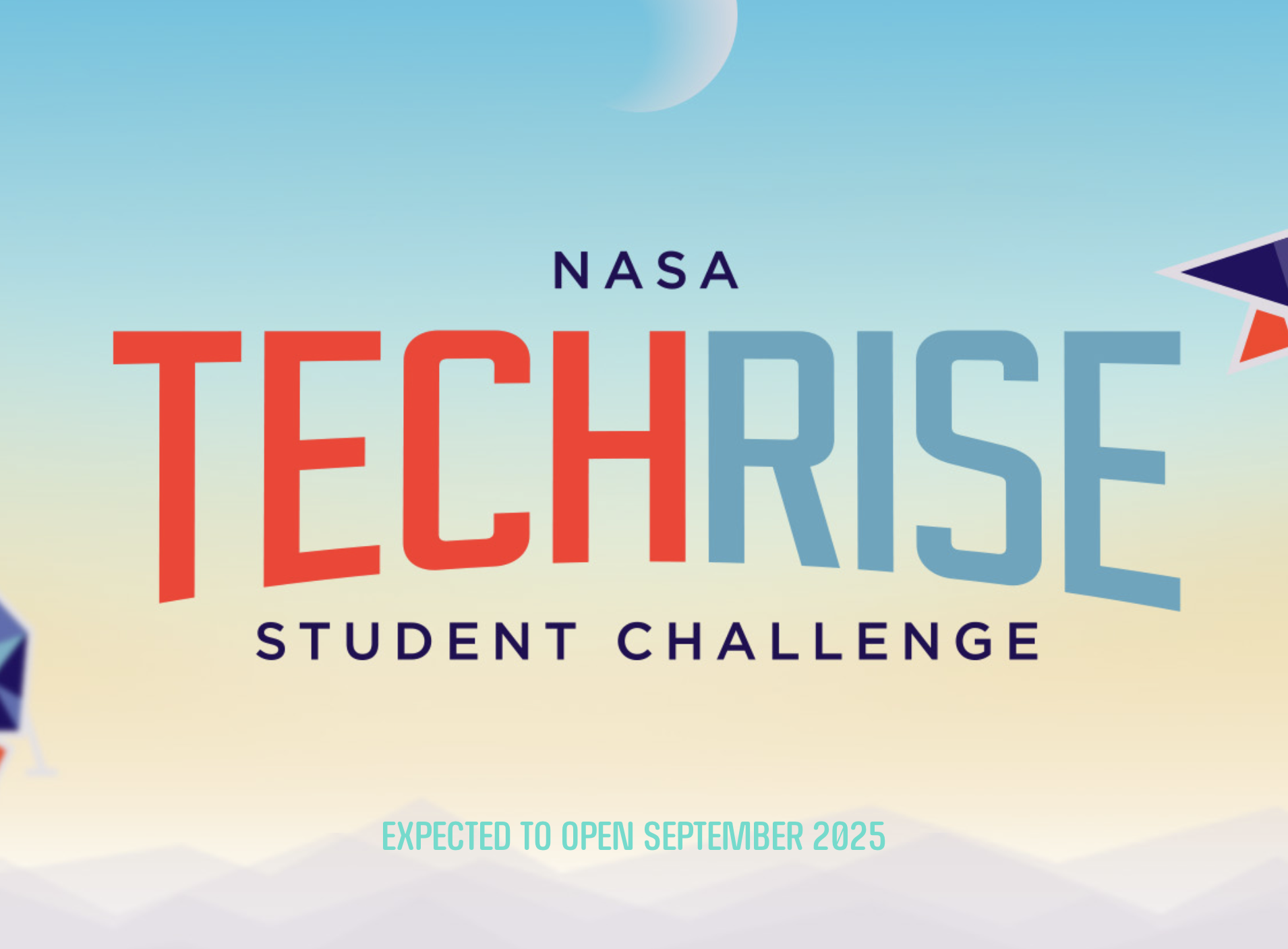
Student Launch is a 9-month long challenge that tasks student teams from across the U.S. to design, build, test, and launch a high-powered rocket carrying a scientific or engineering payload. It is a hands-on, research-based, engineering activity and culminates each year with a final launch in Huntsville, Alabama, home of NASA’s Marshall Space Flight Center. The activity offers multiple challenges reaching a broad audience of colleges and universities as well as middle and high school aged students across the nation.
Any U.S. College or University can submit a proposal to be considered for the Student Launch Challenge – University Student Launch Initiative (USLI). The USLI Division is a competitive division.
The handbook includes rules and requirements, proposal guidelines, a detailed timeline, and more.
Applications: Open
Deadline: September 22, 2025
Culminating event dates: April 22 - 26, 2026
Culminating event location: Hunstville, AL
Audience: Grades 6-12, College and University
To submit a proposal, Click Here
Contact: john.r.eckhart@nasa.gov
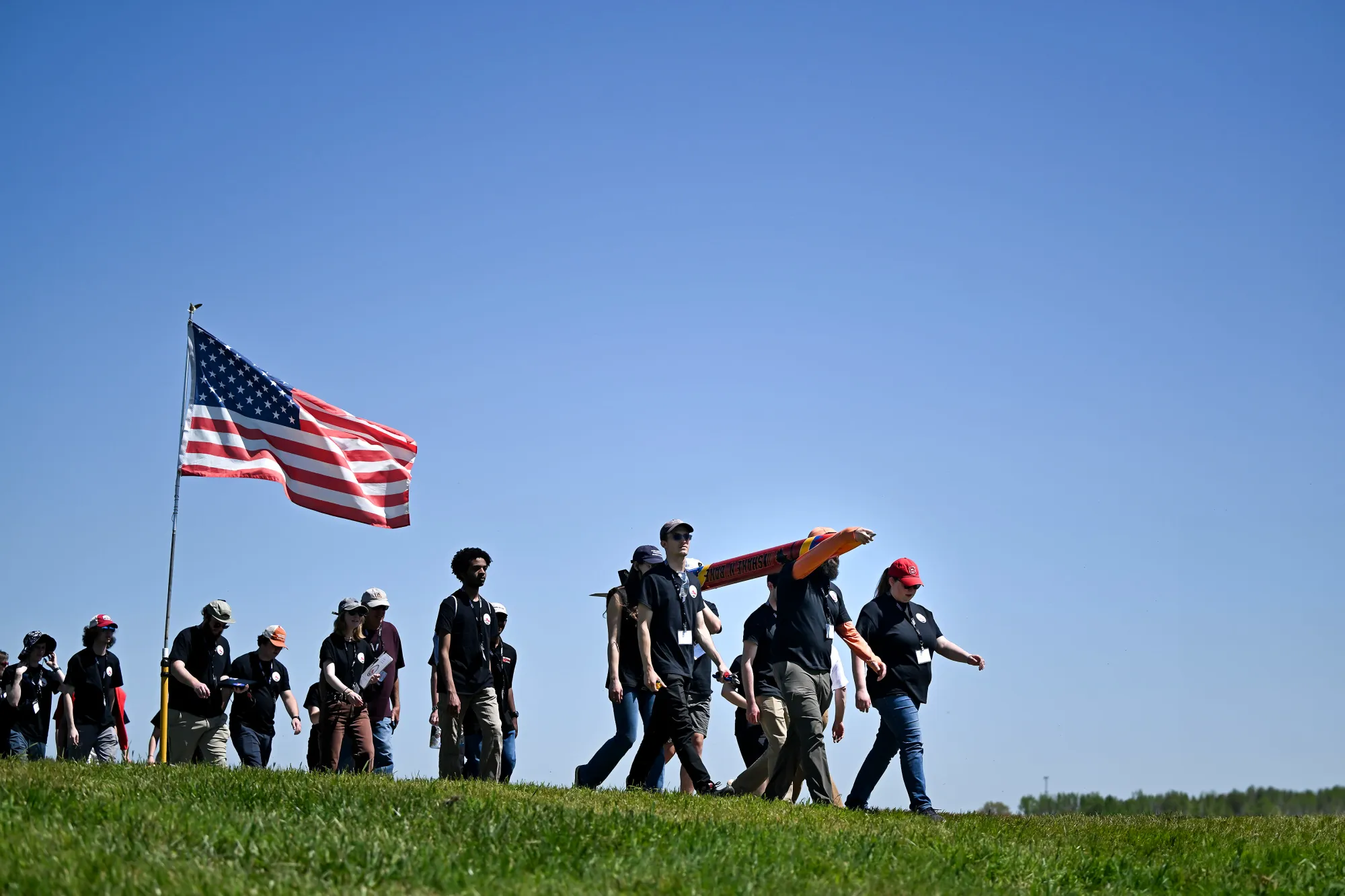
HERC is a nine-month long challenge that tasks student teams to design and build human-powered or remote-controlled rovers capable of traversing challenging lunar terrain while completing mission tasks. It is a hands-on, research-based, engineering activity and culminates each year with a final excursion event in Huntsville, Alabama, home of NASA’s Marshall Space Flight Center. The activity offers multiple challenges, reaching a broad audience of colleges and universities as well as middle and high school aged students across the world.
NASA’s Human Exploration Rover Challenge is open for proposals from:
- Any U.S. college, university, middle school, or high school.
- Any U.S. informal education institution serving middle school or high school aged students.
- Any international college, university, middle school, or high school.
- This 2025-2026 HERC Handbook document represents complete operational content. Final internal administrative revisions are in progress but will not affect procedures or requirements. Proposal period is now open, and teams are authorized to proceed.
The 2025-2026 HERC Handbook document represents complete operational content. Final internal administrative revisions are in progress but will not affect procedures or requirements. Proposal period is now open, and teams are authorized to proceed.
Proposal Deadline: Sept. 15, 2025, by 8 AM CT
Event Dates: April 9-11, 2026
Event Location: U.S. Space & Rocket Center, Huntsville, AL
To submit a proposal, Click Here
Contact: HERC@mail.nasa.gov
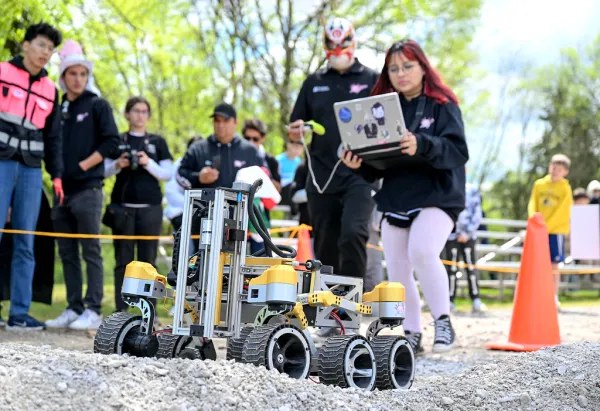
Registration will begin this Fall; more information will be provided when available. The challenge begins on Oct. 1, 2025, and concludes with video submissions on Dec. 10, 2025.
Event dates: April 13-13, 2026
Event location: Johnson Space Center
Audience: High School and Community College
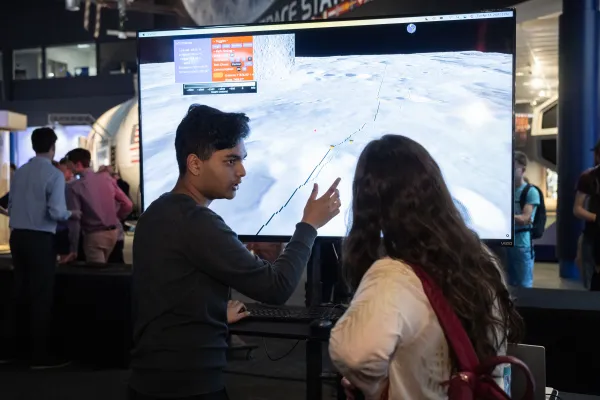
NASA Spacesuit User Interface Technologies for Students (NASA SUITS) is a design challenge in which college students from across the country help design user interface solutions for future spaceflight needs. With NASA’s Artemis campaign, we are exploring the Moon for scientific discovery, technology advancement, and to learn how to live and work on another world as we prepare for human missions to Mars. This means engineers are actively developing technologies needed to assure successful completion of science and exploration missions. As humanity pushes further into the space it is essential that crewmembers on spacewalks be equipped with the appropriate new technologies necessary for the elevated demands of surface exploration on the Moon and Mars. By participating in the NASA SUITS challenge, you can play a part in revolutionizing the human spaceflight experience
Applications: Open
Deadline: October 30, 2025
Event Location: Johnson Space Center, Houston, TX
Audience: College and University
Contact: nasa-suits@mail.nasa.gov
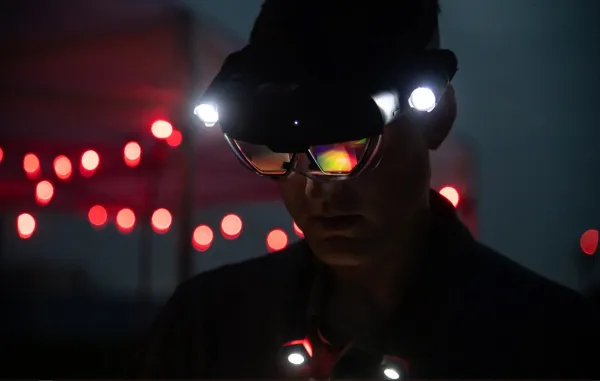
Micro-g Neutral Buoyancy Experiment Design Teams (Micro-g NExT) challenges undergraduate students to design, build, and test a tool or device that addresses an authentic, current space exploration challenge. The overall experience includes hands-on engineering design, test operations, and public outreach. Test operations are conducted in the simulated microgravity environment of the NASA Johnson Space Center Neutral Buoyancy Laboratory (NBL). Teams will propose a design and prototype a tool identified by NASA engineers as necessary in space exploration missions. Professional NBL divers will test the tools and students will direct the divers from the Test Conductor Room of the NBL facility. Micro-g NExT provides a unique opportunity to contribute to NASA’s missions.
Applications: Open
Deadline: October 28, 2025
Event Location: Johnson Space Center
Audience: Colleges and Universities
Contact: jsc-reducedgravity@nasa.gov
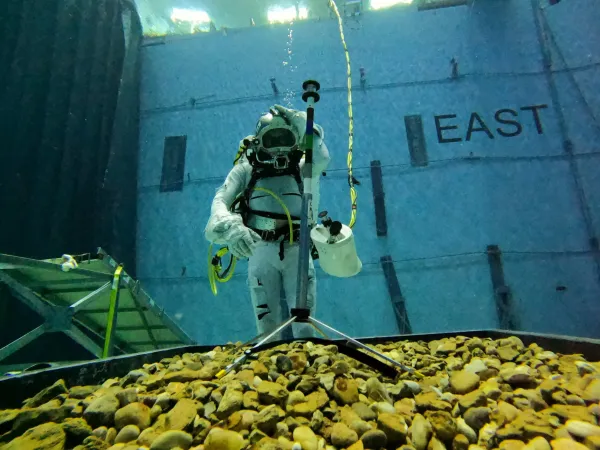
The 2026 RASC-AL Competition is seeking US based undergraduate and graduate teams to develop concepts that support exploration of the Moon and Mars.
- Deadline to submit non binding Notice of Intent: October 13, 2025
- Proposal due date: February 23, 2026
- For full eligibility guidelines, review the 2026 RASC-AL Competition Guidelines .
Click here to submit a Notice of Intent
Contact:rascal@nianet.org
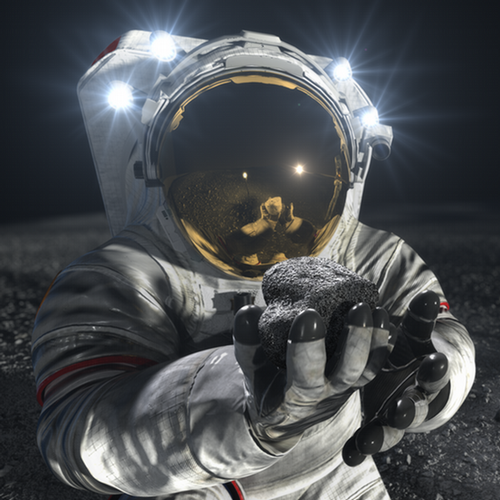
The Dream With Us design challenge invites students to design uncrewed aerial systems and technologies that support the agricultural industry.
Registration Deadline: November 21, 2025
Audience: Grades 6–12

